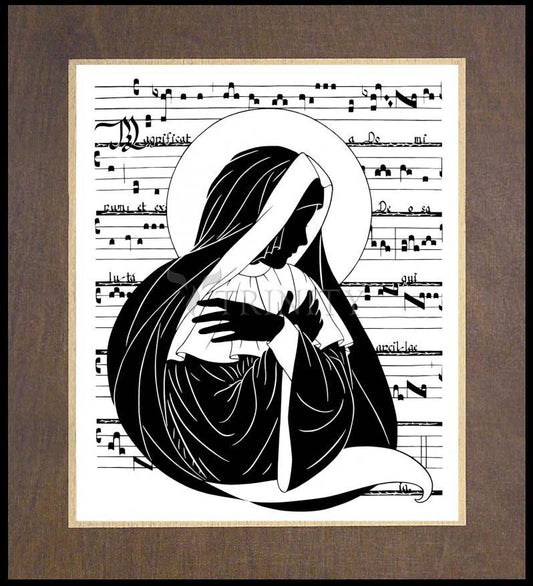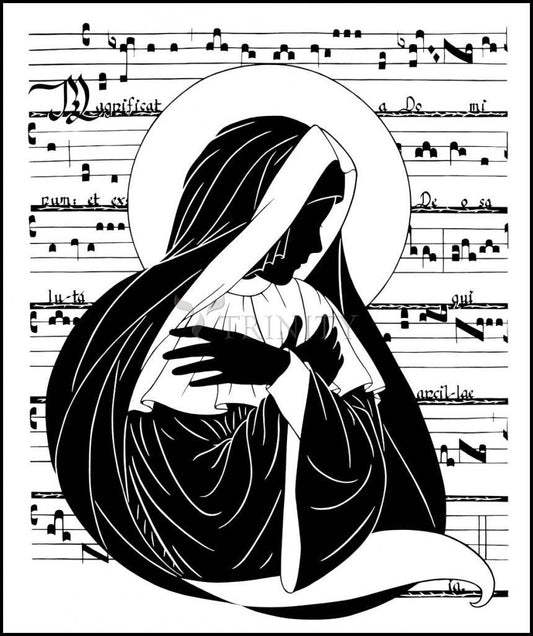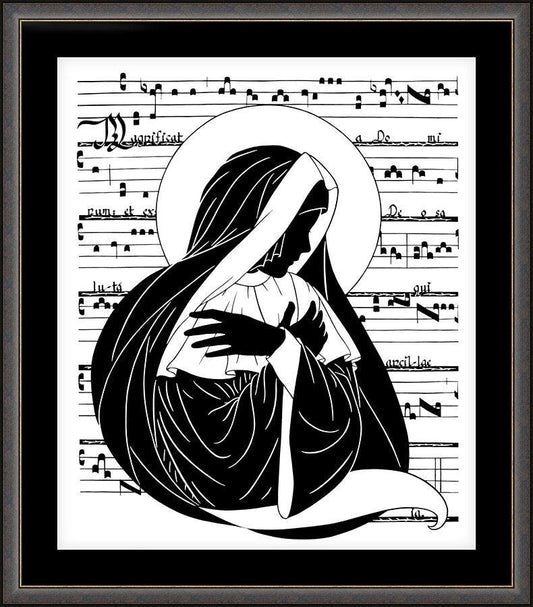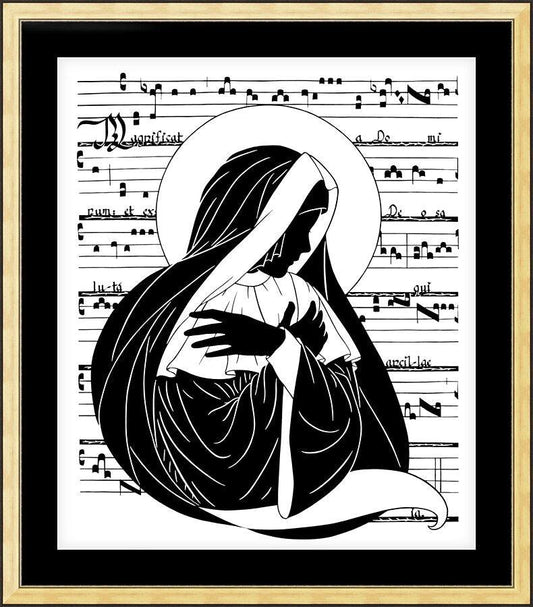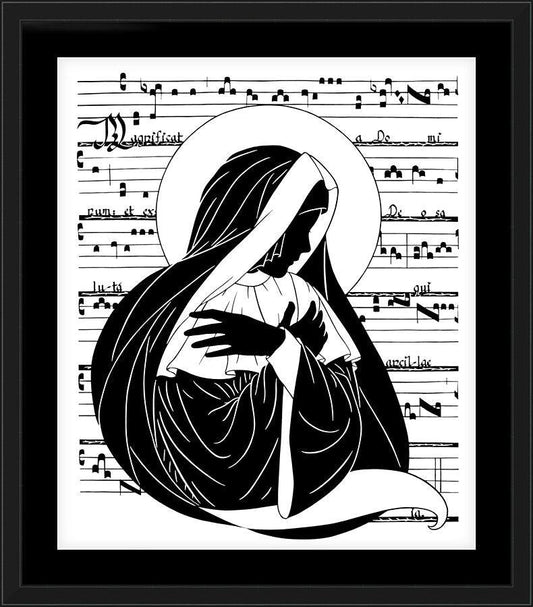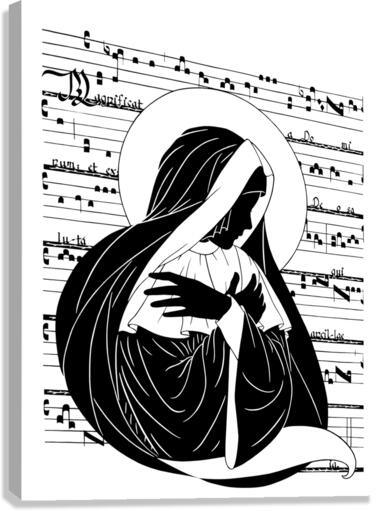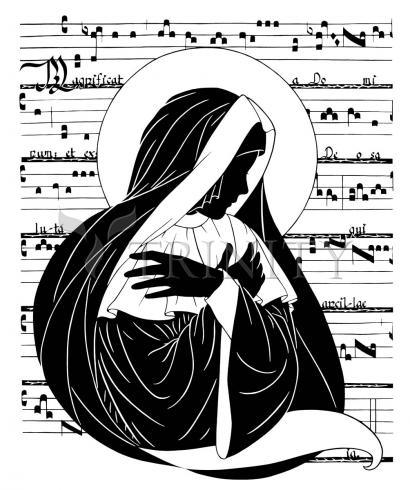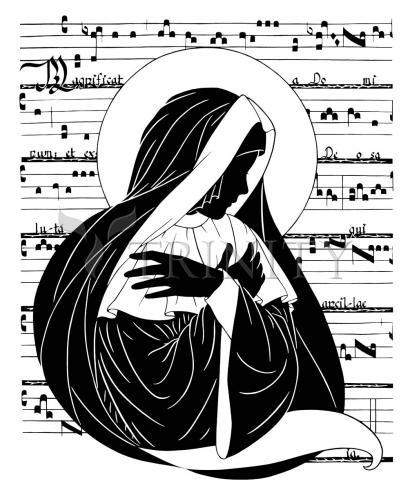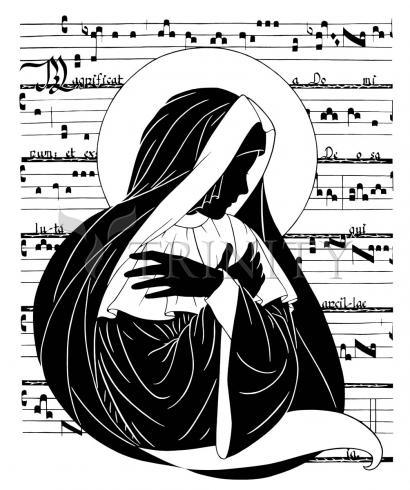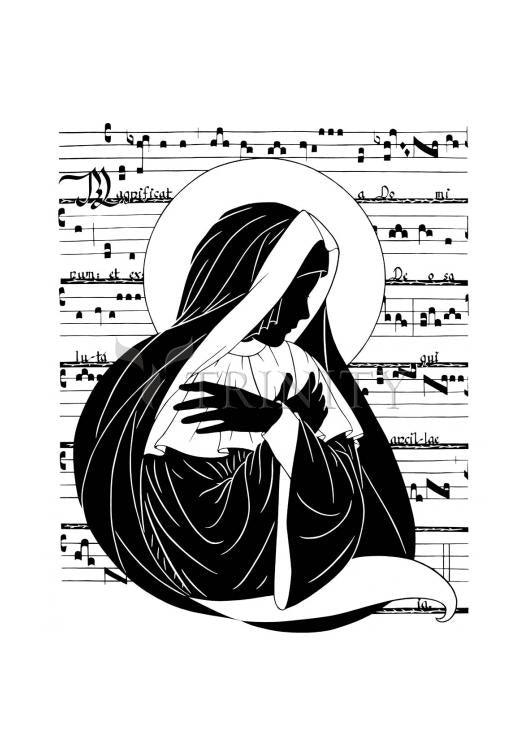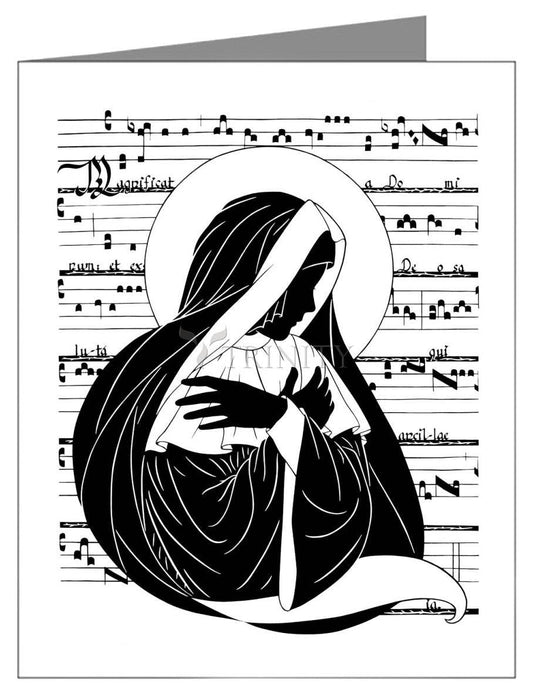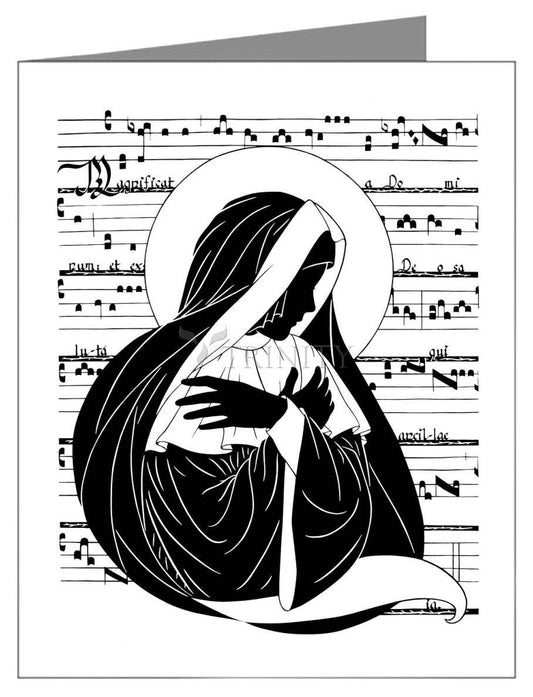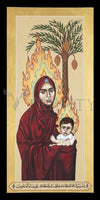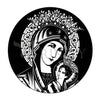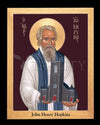The Magnificat (Latin for: [My soul] magnifies) "also known as the Song of Mary, the Canticle of Mary and in Byzantine tradition the Ode of the Theotokos; Greek: Ἡ ᾨδὴ τῆς Θεοτόκου"is a canticle frequently sung (or spoken) liturgically in Christian church services. It is one of the eight most ancient Christian hymns and perhaps the earliest Marian hymn. Its name comes from the first word of the Latin version of the canticle's text.
The text of the canticle is taken directly from the Gospel of Luke (Luke 1:46-55) where it is spoken by the Virgin Mary upon the occasion of her Visitation to her cousin Elizabeth. In the narrative, after Mary greets Elizabeth, who is pregnant with John the Baptist, the child moves within Elizabeth's womb. When Elizabeth praises Mary for her faith, Mary sings what is now known as the Magnificat in response.
Within Christianity, the Magnificat is most frequently recited within the Liturgy of the Hours. In Western Christianity, the Magnificat is most often sung or recited during the main evening prayer service: Vespers within Roman Catholicism and Lutheranism, and Evening Prayer (or Evensong) within Anglicanism. In Eastern Christianity, the Magnificat is usually sung at Sunday Matins. Among Protestant groups, the Magnificat may also be sung during worship services.
Mary's Magnificat, celebrated only in Luke's Gospel, is one of four hymns, distilled from a collection of early Jewish-Christian canticles, which complement the promise/fulfillment theme of Luke's infancy narrative. These songs are Mary's Magnificat; Zechariah's Benedictus (1:67-79); the angels' Gloria in Excelsis (2:13-14); and Simeon's Nunc Dimittis (2:28-32). In form and content, these four psalms are patterned on the "hymns of praise" in Israel's Psalter. In structure, these songs reflect the compositions of pre-Christian contemporary Jewish hymnology. The first stanza displays graphically a characteristic feature of Hebrew poetry"synonymous parallelism"in ascribing praise to God: "my soul" mirrors "my spirit"; "proclaims the greatness" with "has found gladness"; "of the Lord" with "in God my Savior." The balance of the opening two lines bursts out into a dual Magnificat of declaring the greatness of and finding delight in God. The third stanza again demonstrates parallelism, but in this instance, three contrasting parallels: the proud are reversed by the low estate, the mighty by those of low degree, and the rich by the hungry.
Although there is some scholarly discussion of whether the historical Mary herself actually proclaimed this canticle, Luke portrays her as the singer of this song of reversals and the interpreter of the contemporary events taking place. Mary symbolizes both ancient Israel and the Lucan faith-community as the author/singer of the Magnificat.
The canticle echoes several Old Testament biblical passages, but the most pronounced allusions are to the Song of Hannah, from the Books of Samuel (1Samuel 2:1-10). Scriptural echoes from the Torah, the Prophets and the Writings complement the main allusions to Hannah's "magnificat of rejoicing" in l Samuel 2:1-10. Along with the Benedictus, as well as several Old Testament canticles, the Magnificat is included in the Book of Odes, an ancient liturgical collection found in some manuscripts of the Septuagint.



